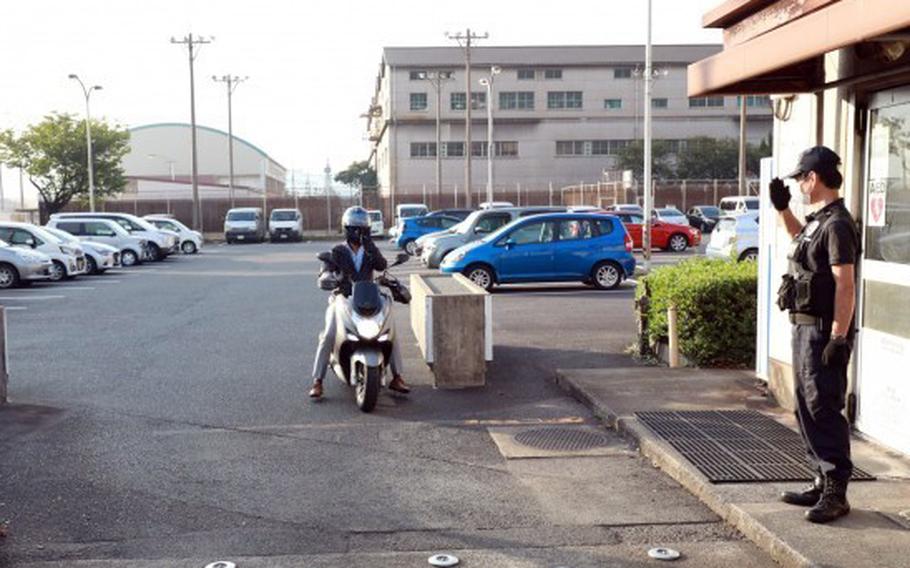
A guard at the U.S. Army’s Kure Pier No. 6 waves through a worker leaving the installation in Hiroshima prefecture, Japan, in 2021. Kure is home to the 10th Support Group, whose mission largely revolves around the stocking, storage and transportation of munitions at three facilities in Kure and one on Okinawa. (Dustin Perry/U.S. Army)
TOKYO — The Japanese government for the first time has added U.S. military facilities to sites where nearby land use and acquisition are subject to tighter scrutiny over security concerns.
Six U.S. military sites are among 180 added Monday to a list designated for tighter regulation under a law passed in 2021, according to Japan’s Cabinet Office website. There are 219 sites in all.
The six U.S. facilities are Hiro Ammunition Depot, Akizuki Ammunition Depot, Kawakami Ammunition Depot, Kure Pier No. 6 and Haigamine Communication Site in Hiroshima prefecture and Itazuki Air Base in Fukuoka prefecture.
The Japanese facilities include Self-Defense Force installations, nuclear power plants and airports. The Defense Ministry in Tokyo and Chitose Airport in Hokkaido were also added to the list this week.
The law regulates the use of property within about a half-mile of designated facilities, such as defense installations, power plants and airports, and remote territorial islands.
The law requires new owners to register details such as names and nationalities when buying or selling a certain size of property near some facilities. It also allows the Japanese government to research details of the owner of that land and to stop activities that interfere with the operation of the designated sites.
“From the past, the ownership and use of land in remote territorial islands or in the vicinity of defense facilities has been a source of security concern,” the Cabinet Office website states.
The penalty for violating the law is up to two years in prison or a fine of up to 2 million yen, or about $13,563, according to Mainichi newspaper report on Monday.